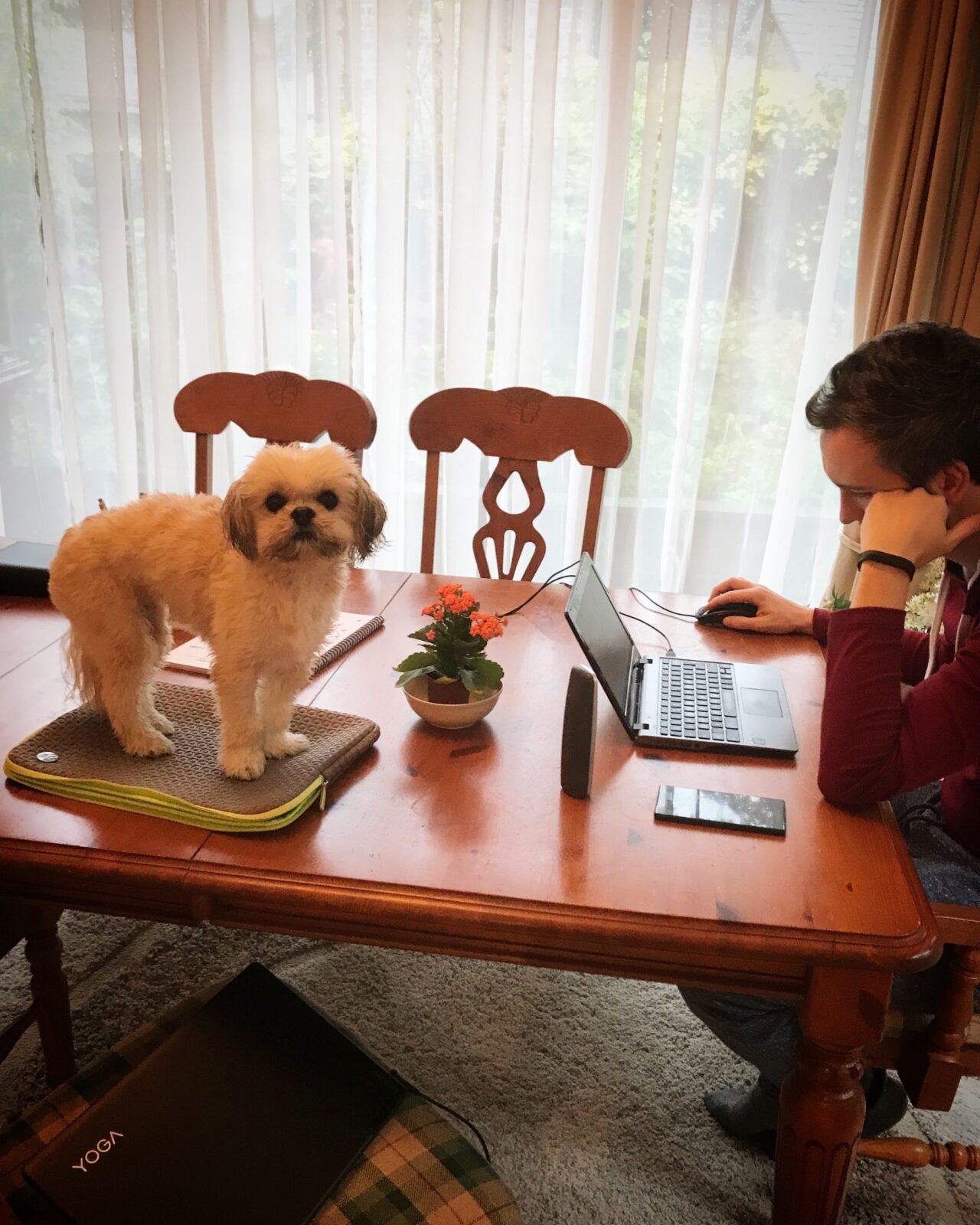
As the UK slowly goes back to normal after three months of lockdown, I find myself wondering what the new normal will look like.
Lockdown has been SHIT for a great number of reasons, but not, however, for the changes it’s prompted in working domains. New approaches have been trialed across various industries with great success.
GP surgeries for example have FINALLY been dragged into the twenty-first century by the use of total triage systems, (phone and online). Would I prefer to email my symptoms to a doctor, or talk over the phone, rather than fighting like a dog at 8 am trying to nab a last-minute appointment? YES PLEASE. It streamlines my whole day! Naturally, there are certain issues that require a physical examination, but I’d hazard that 70% of complaints can be dealt with remotely. Like others in my position, I manage my mental illness perfectly fine by myself. (I just see the GP when I need drugs)!
Traditional office environments have been turned upside down also.
Research conducted by Adzooma, (who email me cool reports occasionally), across a wide range of industries and companies, including Google & Facebook, found the following;
- 83.5% of people enjoy working at home
- 67.6% are more productive when working at home
- 52.6% said they never want to return to an office after COVID-19
Do we prefer remote working?
Before lockdown, working remotely was an unknown experience for the majority of the population. This made it cagey and elusive.
The standard lines I’d hear regularly being;
You must get so lonely – (Not really… I can and do leave the house! There’s also facetime, zoom, social media, and perhaps the now archaic method.. the phone)!
.
I’d never get anything done – (You will if you want to get paid).
.
I couldn’t do that, I need structure in my life – (I have structure, it just doesn’t look like yours).
I discredited my self-employed status for a long time, no matter how successful I was, or how much more money I earned… For some reason, because I wasn’t situated in an ‘official office,’ I felt that others wouldn’t take me seriously.
It’s true, people certainly have their opinions, mainly derived from ignorance… a favourite being my beloved grandma, who takes great offense at my self imposed isolation! ‘I’d be bored stiff without someone to talk to. I’m very social.’ Then proceeds to wax lyrical about just how social she is and why so many people like her. (She’s literally the only person who can get away with this shit because I love her so much). To her, the idea that I might enjoy my own company is beyond foreign.
There’s also this odd assumption that I don’t interact with anyone, when in fact I meet/talk to people more now than I ever did.
Is it better for mental wellbeing?
I started working from myself for a number of reasons, but I was pleasantly surprised by the positive impact it had on my mental health. If you’ve read my post about office environments, then you’ll know that they’ve been triggering in the past.
In my home office, I can literally just be myself. I don’t have to worry about impromptu and (often) pointless meetings, or being interrupted. My movements aren’t noted and I don’t have to navigate difficult colleagues, (unless Rigby is being a cow). All of which used to add unnecessary stress.
Quite simply, I get my work done efficiently, in a way that suits me.
Even in my final role working for a corporate, I worked from home one day a week and found that my productivity increased on said day.
A work environment is about so much more than the actual work if you ask me. Social status, appearances, relationships, performance in meetings, the impact of commuting, even preferences to temperature all play a role! We can’t expect a single environment to suit everyone… except… well the one that we create ourselves. It’s not that surprising that remote working has been such a positive influence on wellbeing.
A got a DM from a follower recently;
I’m really fretting about going back. My confidence has improved so much now that I’m away from that toxic environment and from a specific colleague. I now spend 100% of my time focusing on my work, rather than worrying about how I’m going to get through an encounter with him. In a Zoom meeting, the vibe is totally different, I feel more comfortable asserting my opinions.
If productivity remains positive and overheads (office space rent, bills, etc) are significantly reduced, then I think many companies will be hardpressed to justify their reasons for reverting back to the old ways.
I do however recognise the social argument, which is a valid one. People who live alone, for instance, might be struggling with the lack of face to face interaction. Or those with more extrovert personalities, who feel energised by interaction. Or parents with young children, who simply need a break! Humans are social creatures after all and empathy is often triggered by face to face encounters.
Still, when you look at the varied research e.g; 57.5% said their mental health was affected negatively due to work – – 90.4% said that flexible hours would help. It’s evident that changes need to be made.
Personally, I hope that a happy compromise will emerge, or a new hybrid style of working. (Technology has and will always be a game-changer in this sense).
But I ask… when this is all over, do you really want to go back?
